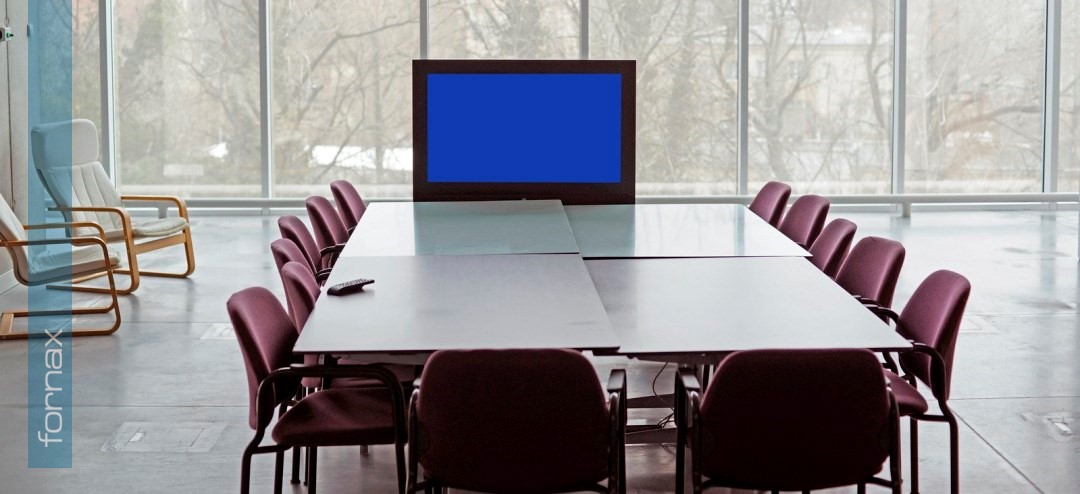IT Stress Test: COVID 19
The Corona virus turned the world upside down. Are there methods, IT solutions or even changes in habits and social norms that are here to stay, or will these few months be a thing of the past soon? An interview with Zoltán Nagy, the professional leader of Fornax ICT.
- Do you have any personal stories to learn from, something that could have only happened in the current situation?
Of course I do, one of these has to do with recruiting and hiring new employees, a process that did not cease during the several months of home office, but it was done on-line, obviously. And even though the on-line selection process may seem successful, we will have to work together in personal proximity with the new hire. We encountered some unexpected difficulties, as you can have all the detailed CVs, psychological tests, lengthy on-line discussions, professional interviews as you want, Teams and Skype are not yet able to communicate odours, even though it would be an important criterion. But perhaps there will come a time.
- The lockdown due to the pandemic effected our lives for a while. Based on the experience of these few months, what methods are there that we can continue to use in our daily lives even after the virus?
The epidemic has a beneficial effect related to work, and that is telecommuting. While working remotely, everybody got used to the idea that practically everything can be discussed using various video chat platforms. Earlier, some people were doubtful about that, and many were reluctant to work from home. I had a talk with people about it, and about 20 percent of the team had reservations about everyone being at home on the long run.
We already had co-workers working from out of town before. For a long time, large corporations have also organized virtual teams of people living near various sites around the world, but the present situation forced our hand even more.
But the proof of the pudding showed that we can work this way, almost everything can be done, and morale did not suffer, on the contrary, our co-workers have less distractions.
- Were there any solutions, situations, that you had believed to be working well, but now proved not to be viable, or the other way around? Were there unexpected events or problems to be solved in this period?
It was an extraordinary situation, as we mandated home office on one day, and no-one came into work the next. But we did not even have minor hurdles, which is great. Interestingly, during the first few weeks, people had to be explicitly asked to turn on their cameras during a video chat, as that makes a meeting much more personal. This did not happen on its own, but after a week everyone accepted it, and it worked. Earlier, many people felt that this gives the others a peek into their private space, and there is of course some truth in that. But Teams, for example, has the feature of masking the background, and many of our co-workers use it. A further positive experience was that everyone created their little nook dedicated to work, just like we asked. It turned out that many people had one already, as home office had been in practice for a long time, although to a lesser extent. Actually, we did not notice any crucial changes regarding work. We already had had a few members of the team joining the daily meetings remotely, only this time around, everybody was virtual.
Fortunately, our underlying infrastructure was built in a way that not even a critical situation like this was able to shake the foundations. From the perspective of existing, tried and true methodologies and company culture, whether we all work at the same location or everybody is scattered in their own homes is not crucial, physical presence can of course not be substituted by online work. The place of work, the environment must allow efficient work to be done.
I, for instance can even work from a restaurant, because I often switch between tasks, I do not perform things requiring hours of concentration, but for a developer a noisy room would not be ideal for deep reflections. According to the feedback, everybody quickly got used to the situation, and daily routines were formed. A few people said that they also got busy around the house, which was good, they caught up with a lot of things, but after a while all these chores were done. Some said they started to get really bored, which made them work more.
- In your opinion, what changes were brought about by the pandemic in the IT industry, what processes are expected to launch?
The “winners” of the situation were IT companies offering communication solutions, those that adapted modes of operations like ours.
We keep each other posted with the co-workers about the tasks on a daily basis. The lockdown might have caused problems and setbacks for companies where these discussions and briefings did not happen every day. I know of several companies that already have all their employees back at the office, because telecommuting was not efficient for them. Some executives I know told me with disappointment that many of their staff did take unfair advantage of the situation, going for bike rides or other leisure activities during working hours, often neglecting their work. Luckily, we had none of that experience.
- What are your experiences in terms of group dynamics, did you draw any conclusions during the lockdown, what did you need to pay attention to?
When we talk about all the co-workers, group dynamics is pretty difficult to maintain “globally”, it is not something that works by itself, we have to actively keep it up. For that very reason we paid special attention to smaller groups working on a project having frequent discussions, so that group dynamics is maintained. Our teams assess the finished results every two weeks, evaluate lessons learned, and every week there is also a planning session.
People get together for a longer time at least once a week for some other reason, and they also have virtual meetings every day to discuss things accomplished the previous day, and what they are to do on the current day. They talk about difficulties and successes. The team is held together by the scrum master and the product owner responsible for deliverables, who tracks and controls the effort. Due to the methodology and the company culture, the system is able to work remotely just as well. During the lockdown it was obviously more difficult to keep the cohesion on the project level as well.
To that end we also organized a monthly all-company meeting, where everybody received clear updates about the plans, about the expected end date of home office, changes to be anticipated and things that happened up to that point. This let everyone know that the company is alive and well, even though its physical manifestation, the office site, is momentarily empty. We tried to enliven these gatherings with various activities.
We sent out surveys to the Team to assess what kind of community building activity would shake up the time of the pandemic. The first time around the winner idea was going for pizza on-line. So one afternoon our HR team ordered the pizzas priorly picked out by our staff members, finding delivery services even for those living out of the capital – and we ate together during a Teams meeting. This perhaps was kind of a substitute for the usual meals together in the office.
Furthermore, we had and continue to have conversations with fewer participants, where everyone gets a chance to talk about how they go through this experience, how they have been feeling. In addition to our HR staff, I am also present at these talks. It is of course not mandatory, but practically every scrum master and product owner conduct one-on-one chats like these with their own team members.
There was also one time when one of our co-workers celebrated a successful project by baking a cake for the team, and then delivered a piece for each team member by car. This was a private initiative within a group. Team spirit was therefore kept up by proactive teams as well as companywide virtual meetings. Thanks to all of the above, our group dynamics did not really suffer. Of course, handling and maintaining the current situation required a lot more effort compared to on-site presence.
Regarding group dynamics, the demand for social interactions varies greatly from one individual to the next, this primarily depends on the people’s personality. Coding or any other intellectual pursuit requires immersion, therefore a different kind of personality. At our company only six co-workers said they would prefer coming to the office, the vast majority of people were fine with being at home. But those needing more interaction had many other ways to make that happen with the team.
- In your view what changes in society and habits took place due to the Corona threat, be it in private or corporate life? How does IT catalyse these processes?
The pandemic in itself did not bring about great changes, it is the world that is changing in its own pace. It did, however, speed up a few things. There will be more firms resorting to home office. We introduced two days a week as well, and we do have the prerequisites for it. But permanent home office is unlikely, as the people being at one location physically does have its advantages.
It is an opportunity to be used if possible. Home office has benefits to be reaped, but many people also miss going to the office. The only constraint set by the leadership was that Monday and Friday cannot be picked for telecommuting. That leaves only a few options, and on the other three days there is an at least 30 percent chance that the majority of the teams will be on site together. Everybody went along with this rule.
Based on our experience if a home office day directly follows or precedes a weekend, employees, especially in the beginning, tend to look upon it as a long weekend. If, however, work from home happens in the middle of the week, then they do treat it as home office, such is the human psyche. We will alter our office space, and every room will have audiovisual equipment enabling the co-operation of a mixed team. Work will be further aided by cameras, virtual whiteboards and drawing boards. A part of the team will be in the office, the rest will work from home. If they do go in, teams have a preference of being on site together, if possible.
Now, however, more and more people insist on personal encounters. Habits will not be modified by a few months, with a handful of possible exceptions. On the other hand, many people – and I could be one of them – decide to move to the countryside and perhaps commute to Budapest once a week for the few meetings they do need to conduct personally. Nonetheless, personal encounters are always important in business life. If we take a look at more southern countries, personal relationship is a stronger factor still, so they will be even more reluctant to give it up.
People to the north, on the other hand, are less dependent on personal interaction, partly due to the cold and the lack of daylight. They are happier to retreat into their homes. It all depends on the attitude of the society, so some people will be affected more, some less. But if this situation was prolonged for years, if people were to continuously work from home on the long run due to severe lockdowns, then in all likelihood their way of thinking would switch as well. Perhaps they would even be uneasy to be in each other’s proximity. Two or three months is too short a time for that.
Things will go back to normal later on, let us take the handling of sensitive data, for example. During the pandemic, many people accepted that they should transfer relatively sensitive questions via encrypted communication devices. I think as soon as we have a vaccine (hopefully soon), the threat of contagion will go away. And the world will revert to tried and true old solutions.
I am now reading the “Hitchhiker’s Guide to the Galaxy” series, the second volume of which is “The Restaurant at the End of the Universe”. In that the author writes that they want to find the true ruler of the universe. Quick transportation, flying, more specifically no-frill flights play a great role in pandemics, as viruses can spread at breath-taking speed. If the universe did have a true ruler, who could restrict the number of these flights, that would decrease the probability of pandemics. In lieu of a true ruler, Austria and some other countries introduced a rule that no flight ticket can be sold for less than 50 pounds. If such a tendency did exist, making these weekend excursions – with which one can pop over to a world metropolis for a latte – more expensive, the world in my opinion would change.
But what the overall societal impact of this lockdown will be is anybody’s guess. People tend to go back to the same old, once the situation is under control.
- What new habits and digital solutions are there that we used during the pandemic and that could be elaborated further?
Communication solutions, like Teams, Skype or Zoom for example all came to the forefront. During the pandemic even people who had been unfamiliar with them before were now compelled to use them. In the current situation it became necessary to install and learn these, as one kept contact this way with loved ones or colleagues, or even used it for studying. People who never had to use cloud-based services or shared storages were now forced to learn and take advantage of these. These digital solutions are probably here to stay in our everyday life, as people have fewer aversions, and they now believe that they work and are useful.





